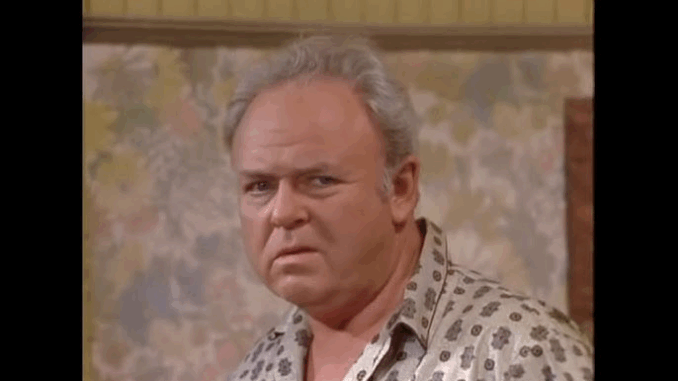
When All in the Family aired the episode “Edith’s Problem” on January 8, 1972, it did something almost no other American sitcom had dared to do at the time—it talked openly and unapologetically about menopause.
This episode is not just a classic—it’s historic. With its blend of comedy, discomfort, and unexpected tenderness, “Edith’s Problem” tackled a taboo subject that affected millions of women, but had rarely—if ever—been addressed on prime-time television. More than 50 years later, it still stands as a milestone in TV history and a testament to the genius of All in the Family.
The Setup: Change Comes to the Bunker Household
In this episode, the ever-sweet, always-peacekeeping Edith Bunker (played by the incomparable Jean Stapleton) begins acting… differently. She’s moody. Short-tempered. Even angry—at Archie, no less! Her sudden outbursts leave the family confused and concerned, particularly Archie, who is utterly unequipped to handle any change in his carefully ordered, patriarchal world.
As the tension builds, it becomes clear: Edith is experiencing menopause.
Breaking the Silence With Bold Comedy
What makes “Edith’s Problem” so revolutionary isn’t just the topic—it’s how the show handles it. With Norman Lear’s signature blend of unfiltered realism and sharp-witted humor, the episode educates while it entertains. Archie’s ignorance and discomfort are used not to mock the subject, but to highlight society’s general unwillingness to talk about women’s health issues.
At one point, Archie laments:
“It’s like she’s got two personalities—Edith, and the thing that’s taken over Edith!”
The audience laughs, but they also learn. The show carefully explains what menopause is, without shame or stigma, while portraying Edith’s experience with dignity, vulnerability, and strength.
A Masterclass in Acting
Jean Stapleton’s performance is a masterclass. She portrays Edith’s emotional rollercoaster with such depth and nuance that it elevates the material far beyond sitcom territory. Her portrayal was a gift to every woman watching—especially in an era when menopause was whispered about, not spoken aloud.
Carroll O’Connor also shines as Archie, whose journey from confusion to reluctant compassion gives the episode its emotional payoff. He may never fully understand what Edith is going through, but by the end, he chooses love over ego—a rare and touching moment of growth for his character.
Why “Edith’s Problem” Still Matters
Today, conversations around menopause and women’s health are more open—but we’re still catching up to the groundbreaking honesty of this 1972 episode. “Edith’s Problem” showed that sitcoms could do more than make us laugh—they could make us think, challenge taboos, and reflect the real lives of the people watching at home.
It was a risk. And it paid off—not only in ratings but in cultural resonance. This was not just an episode. It was a message: women’s experiences matter, and they deserve to be seen and heard—even in the living rooms of America’s most traditional TV family.